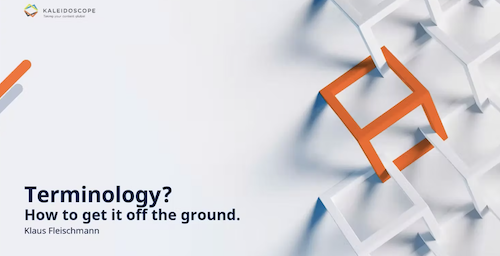Recorded on
February 7, 2024

When should regression testing be performed?
Regression analysis of PDFs allows you to test system changes, changes to CMS, changes to stylesheet, changes to formatting software, and changes to graphic software.
Regression testing should take place anytime your system, hardware, or software changes to determine if what was correct in the output is still correct in output. Changes may result in content disappearing, incorrect formatting, changes to the integrity of images and tables, and many other (sometimes subtle) issues that invalidate the reliability of the document.
Antenna House Regression Testing System is for Automated – Fast – Accurate PDF to PDF & Image to Image Visual Comparisons
Presented by Michael Miller

Michael Miller is Vice President of Antenna House, Inc., a company that has developed one of the leading standards‐based (XSL‐FO and CSS) document formatting software products on the market today. Michael has a degree in Printing Engineering and Management and has been involved in high‐end composition, document formatting, and document management for over 40 years. He has an extensive background with structured data, including SGML, XML, S1000D, and DITA. During his career, he has worked in Europe and North America and has been involved in the implementations of some of the largest fully automated publishing and document formatting projects.

 The results have been collected, analyzed, and discussed. Now it’s time to share the results and our observations with you. Join Dawn Stevens as she shares the results of the 2022 CIDM Benchmark Survey on translation and localization practices in our community. She’ll examine the trends and answer questions such as:
The results have been collected, analyzed, and discussed. Now it’s time to share the results and our observations with you. Join Dawn Stevens as she shares the results of the 2022 CIDM Benchmark Survey on translation and localization practices in our community. She’ll examine the trends and answer questions such as:
 Dawn Stevens, President, Comtech Services and Director of CIDM has 28 years of practical experience in virtually every role within a documentation and training department, including project management, instructional design, writing, editing, and multimedia programming. Dawn is the perfect advisor to identify and remove the challenges you face in producing usable, technical information and training content. With both engineering and technical communication degrees, Dawn combines her solid technical foundation with strong writing and design skills to lead our team of consultants and specialists in providing the expertise you need.
Dawn Stevens, President, Comtech Services and Director of CIDM has 28 years of practical experience in virtually every role within a documentation and training department, including project management, instructional design, writing, editing, and multimedia programming. Dawn is the perfect advisor to identify and remove the challenges you face in producing usable, technical information and training content. With both engineering and technical communication degrees, Dawn combines her solid technical foundation with strong writing and design skills to lead our team of consultants and specialists in providing the expertise you need.
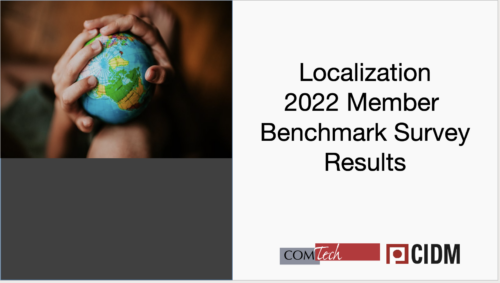
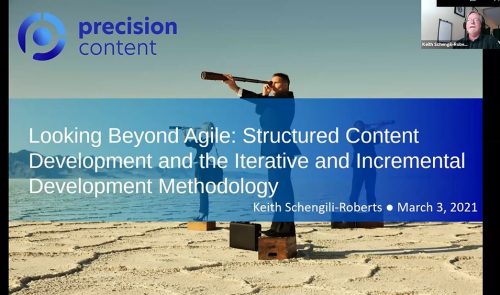
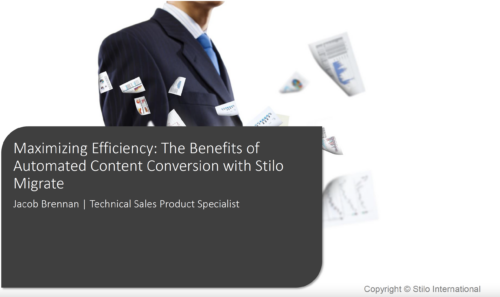

 Jacob Brennan is a Technical Sales Product Specialist at Stilo. He works with Stilo Migrate customers and aids in converting their legacy content to DITA. Jacob is a recent graduate from the University of Ottawa holding a BASc. in Mechanical Engineering and a BSc. in Computing Technology.
Jacob Brennan is a Technical Sales Product Specialist at Stilo. He works with Stilo Migrate customers and aids in converting their legacy content to DITA. Jacob is a recent graduate from the University of Ottawa holding a BASc. in Mechanical Engineering and a BSc. in Computing Technology. 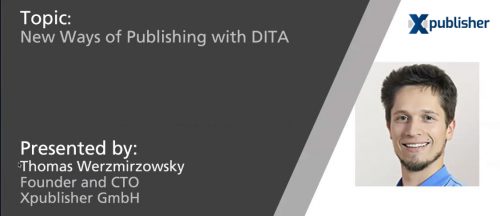

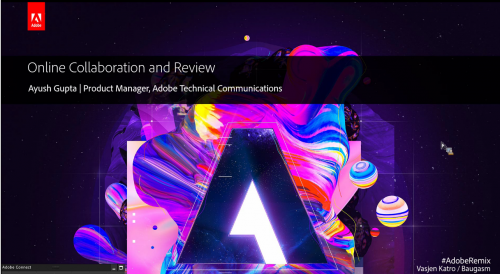



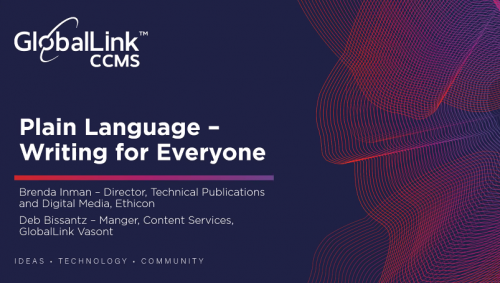
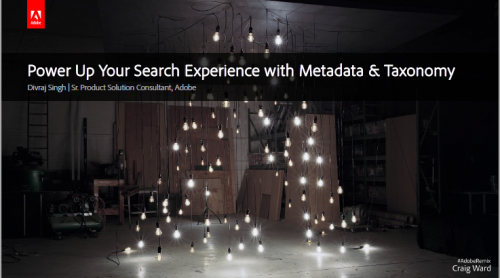
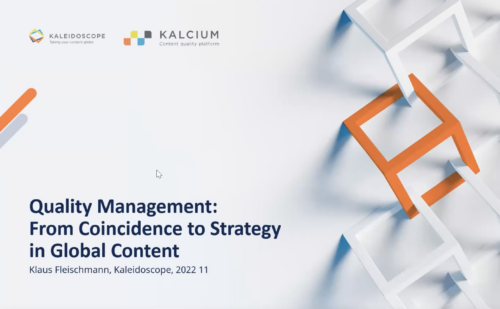

 Klaus Fleischmann studied translation and IT in Vienna, holds an MA in Conference Interpreting from Monterey, California, and a MAS in Technical Communication from Krems, Austria. In 1996, he founded Austria-based Kaleidoscope, a company implementing content, translation, and terminology management processes for internationally active companies. Kaleidoscope develops online collaboration software for enterprise-level terminology workflow, translator query management, in-country review etc., making the translation quality process comprehensible and strategically manageable. In 2007, he became CEO of Austria´s leading LSP, Eurocom Translation Services. Always active in the industry, Klaus got voted into the Gala Board of Directors in 2015 and 2017.
Klaus Fleischmann studied translation and IT in Vienna, holds an MA in Conference Interpreting from Monterey, California, and a MAS in Technical Communication from Krems, Austria. In 1996, he founded Austria-based Kaleidoscope, a company implementing content, translation, and terminology management processes for internationally active companies. Kaleidoscope develops online collaboration software for enterprise-level terminology workflow, translator query management, in-country review etc., making the translation quality process comprehensible and strategically manageable. In 2007, he became CEO of Austria´s leading LSP, Eurocom Translation Services. Always active in the industry, Klaus got voted into the Gala Board of Directors in 2015 and 2017. 

 Tristan is Product Director at DeltaXML, a technology company with world-leading software products for the management of change in structured content. He has a deep understanding of DeltaXML’s product suite and loves to help customers create extra value in their content using change management. Tristan is a father to three daughters, a movie lover, and a keen runner.
Tristan is Product Director at DeltaXML, a technology company with world-leading software products for the management of change in structured content. He has a deep understanding of DeltaXML’s product suite and loves to help customers create extra value in their content using change management. Tristan is a father to three daughters, a movie lover, and a keen runner.

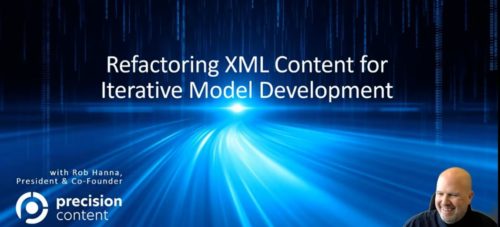
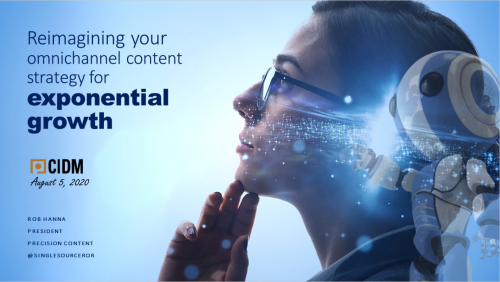


 Fabrice Lacroix is a serial entrepreneur and a technology pioneer. He has been working for 25 years on the development of innovative solutions around search technology, content enrichment and AI. He is the founder of Fluid Topics, the leading Content Delivery Platform that reinvents how users search, read and interact with technical documentation.
Fabrice Lacroix is a serial entrepreneur and a technology pioneer. He has been working for 25 years on the development of innovative solutions around search technology, content enrichment and AI. He is the founder of Fluid Topics, the leading Content Delivery Platform that reinvents how users search, read and interact with technical documentation. 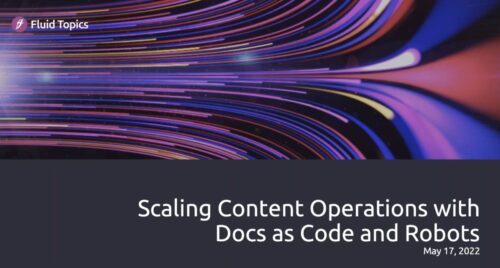
 While product cycles are getting shorter in all industries, down to daily releases for SaaS vendors, technical documentation teams have to keep up with the pace. Information needs to be written faster and delivered in sync.
Join Fabrice Lacroix, CEO and founder of Fluid Topics, and Gaspard Bébié-Valérian, certified technical writer and functional consultant, as they untangle the complex process of continuous content delivery and unveil new methods and processes to embrace the new landscape of documentation. They will share their insights and experience as they explore the collaborative potential between SMEs and tech writers opened by Docs as Code, examine the tooling behind a continuous documentation flow, and showcase the example of a robot writing release notes.
Presented by Fabrice Lacroix & Gaspard Bébié-Valérian:
Fabrice Lacroix is a serial entrepreneur and a technology pioneer. He has been working for 25 years on the development of innovative solutions around search technology, content enrichment and AI. He is the founder of Fluid Topics, the leading Content Delivery Platform that reinvents how users search, read and interact with technical documentation.
At the crossroads of engineering and social sciences, Gaspard enjoys exploring the breadth of technologies involved in technical documentation, including structured documentation, CCMS, and collaborative paradigms like docs as code. Gaspard works as Functional Consultant at Antidot helping clients get the most out of Fluid Topics.
While product cycles are getting shorter in all industries, down to daily releases for SaaS vendors, technical documentation teams have to keep up with the pace. Information needs to be written faster and delivered in sync.
Join Fabrice Lacroix, CEO and founder of Fluid Topics, and Gaspard Bébié-Valérian, certified technical writer and functional consultant, as they untangle the complex process of continuous content delivery and unveil new methods and processes to embrace the new landscape of documentation. They will share their insights and experience as they explore the collaborative potential between SMEs and tech writers opened by Docs as Code, examine the tooling behind a continuous documentation flow, and showcase the example of a robot writing release notes.
Presented by Fabrice Lacroix & Gaspard Bébié-Valérian:
Fabrice Lacroix is a serial entrepreneur and a technology pioneer. He has been working for 25 years on the development of innovative solutions around search technology, content enrichment and AI. He is the founder of Fluid Topics, the leading Content Delivery Platform that reinvents how users search, read and interact with technical documentation.
At the crossroads of engineering and social sciences, Gaspard enjoys exploring the breadth of technologies involved in technical documentation, including structured documentation, CCMS, and collaborative paradigms like docs as code. Gaspard works as Functional Consultant at Antidot helping clients get the most out of Fluid Topics. 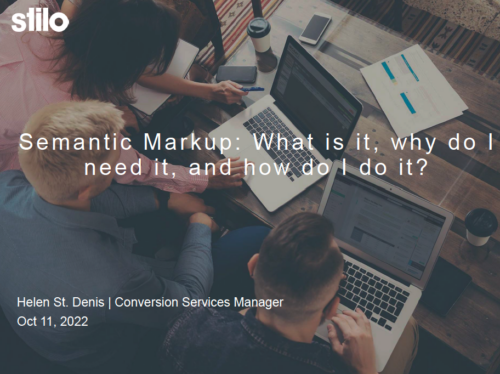
 Helen joined Stilo as a technical editor. She now works closely with Stilo Migrate customers, helping them to analyze their legacy content and configure appropriate mapping rules. She also provides Migrate customer training and support. Helen has helped Migrate customers to convert millions of pages of content to DITA and custom XML. Helen holds a Bachelor of Arts in English from St. Francis Xavier University in Antigonish, Nova Scotia, and has pursued graduate studies at Queen’s University in Kingston, Ontario. Email:
Helen joined Stilo as a technical editor. She now works closely with Stilo Migrate customers, helping them to analyze their legacy content and configure appropriate mapping rules. She also provides Migrate customer training and support. Helen has helped Migrate customers to convert millions of pages of content to DITA and custom XML. Helen holds a Bachelor of Arts in English from St. Francis Xavier University in Antigonish, Nova Scotia, and has pursued graduate studies at Queen’s University in Kingston, Ontario. Email: 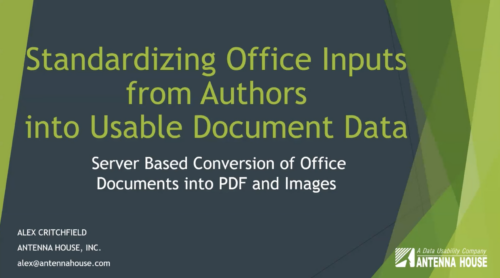

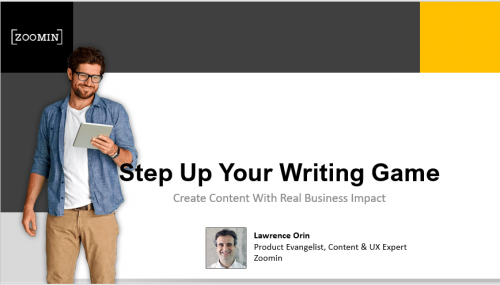
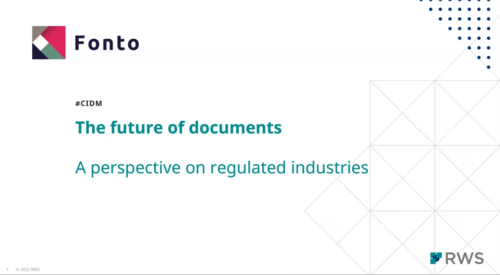


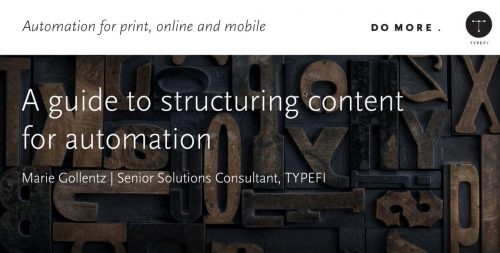



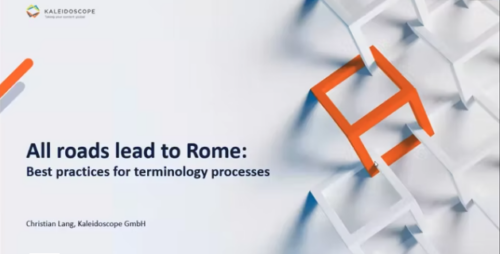
 Christian Lang, Technical Consultant, has a wide range of experience and interests in the language field, proven by his degree in Japanese studies and translation. He first became involved with terminology management as a freelance translator for the European Patent Office. Since then, it has become one of his hobbies, as has research in the field of NLP on topics such as machine translation, automatic term extraction, and concept maps.
Christian Lang, Technical Consultant, has a wide range of experience and interests in the language field, proven by his degree in Japanese studies and translation. He first became involved with terminology management as a freelance translator for the European Patent Office. Since then, it has become one of his hobbies, as has research in the field of NLP on topics such as machine translation, automatic term extraction, and concept maps.
